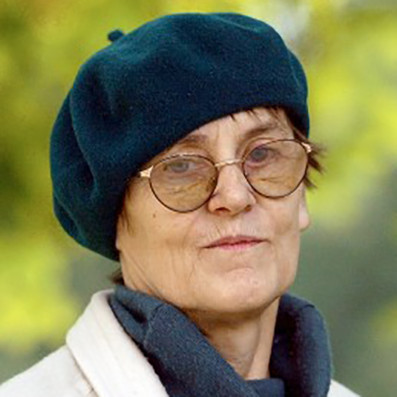
Maija Einfelde
(02.01.1939 )
"... I do not really understand my younger colleagues when they declare that they wish to extinguish any kind of Latvian roots in their music. I am happy if there are national roots in music and I am sad if they are not there. It is satisfying when you know what happens in the world, and still you remain who you are."
Maija Einfelde
Along with her victory in 1997 at the international Barlow Endowment for Music Composition Competition in the United States, Maija Einfelde began to receive wide international recognition for her music. The composer was born in Valmiera on January 2nd, 1939. Her father was an organ builder, and her mother played the organ in church. Her music education was in Cēsis, at the Alfrēds Kalniņš Music School and in Riga at the Jāzeps Mediņš College of Music. She studied in Jānis Ivanovs’ composition class at the Latvian State Conservatory, which she graduated in 1966. In 1968 she began her work in education, teaching composition and music theory (at the Alfrēds Kalniņš Cēsis School of Music, the Jāzeps Mediņš College of Music, the Emīls Dārziņš School of Music, and the evening music school Rīdze).
Maija Einfelde mainly composes choral music and chamber music. At the Barlow competition she received the highest award for her chamber oratorio Pie zemes tālās... (At the Edge of the Earth…) with lyrics by Aeschylus. After her victory at the Barlow competition, she was commissioned to write a new choral work – the 15th Psalm. Four choirs performed this work (The Brigham Young University Choir and the Kansas City Chorale in the United States, the Vancouver Chamber Choir in Canada, and the Netherlands Radio Choir), and the work was performed in Kansas City and in New York City at Carnegie Hall, with the author herself in attendance. The work Un es redzēju jaunas debesis (And I Saw a New Heaven), text from the Book of Revelations, was composed in 1998 as the result of a commission from the world famous English Hilliard Ensemble. The music of Maija Einfelde has achieved distinguished success at the UNESCO International Music Council (IMC) competition Rostrum: Her Concertino for four clarinets and Maija balāde (May Ballad) with lyrics by Aspazija for 8-part mixed choir are among the works of Latvian composers which Rostrum recommends to the world’s broadcasters to include in their programs.
In 1997, Maija Einfelde was awarded the Latvian Great Music Award. In 1999, she was awarded the Culture Award of the Republic of Latvia, and in 2000, the Copyrights’ Infinity Award, which was awarded to her by the Latvian Authors’ Union. In 2002, the composer became an honorary member of the Academy of Science.
The composer’s son Jānis Einfelds is a writer. Maija Einfelde composes daily, not waiting for inspiration. She carefully works out all the details and nuances of her works. She willingly develops many editions and versions of one work, for example Ave Maria (for women’s choir, for mixed choir, and for organ), or Adagio (a movement from the string quartet, also for piano trio, also for violin, cello, and organ).
Mārīte Dombrovska Photo - Edmunds Mickus © LMIC
Ligita Ašme
